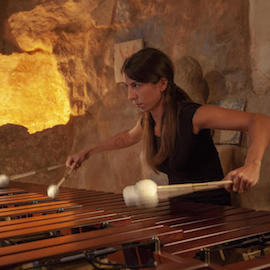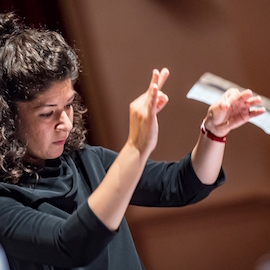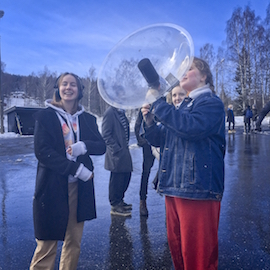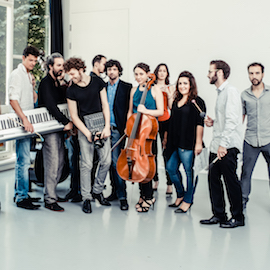ULYSSES Audience Research Blog #5 – Summeracademy Opus XXI, Trossingen (DE)
08/2017 HfMT – DE
I spent the end of last week at the Bregenzer Festspiele in Austria for the closing concert of this year’s Opus XXI Summer School for contemporary music. The culmination of ten days of intensive music-making, the event presented three premieres by young composers and three further works that had been prepared by a group of young instrumentalists, under the guidance of Parisian ensemble, L’instant donné. A small but enthusiastic audience attended, consisting largely of regular contemporary classical music attendees, but mostly with either no or only some musical training, in contrast to other audiences surveyed so far. Several comments praised the skill of the performers and the choice of works but a few answers mentioned feeling as if those performing hadn’t communicated with them sufficiently or that they weren’t able to appreciate or discern the texts of the vocal works. So, overall, a positive but slightly conflicted reception.
Highlights: Opus XXI, 11.08.2017
- – Mioko Yokoyama’s transience for soprano, mezzo-soprano and ensemble drew us effectively into its subtle, delicate soundworld. The soprano gradually faded in to the work, whispers building into speech, building into song. The contrasting middle section featured a Japanese text, at times intoned by all performers, before satisfyingly returning to the relative peace of the opening passage.
- – I very much enjoyed Bertrand Plé’s witty so oder so und so weiter with its unusual constellation of soprano, saxophone solo and ensemble. The playful text deconstructed the German language in a manner inspired by the French children’s word game ‘Les trois chats’ and was delivered astutely by soprano, Louise Leterme. As in Yokoyama’s work, the technique of vocal fade was innovatively used but in the opposite direction this time; the final line was repeated more and more quietly, ending in an exaggerated mime accompanied by key clicks from the saxophonist (Asya Fateyeva).
Inspired equally by myths of creation and destruction and the works of ancient mathematical innovators, Martin Grütter’s Siebenkreiswerk for small ensemble took the listener through intense cycles of explosive sound and motivic regeneration (as well as basically every type of clarinet). Thick with timbral effects, it gathered to a shuddering, almost melodramatic conclusion of wailing clarinet glissandi and hysterical piccolo.
Gina Emerson




